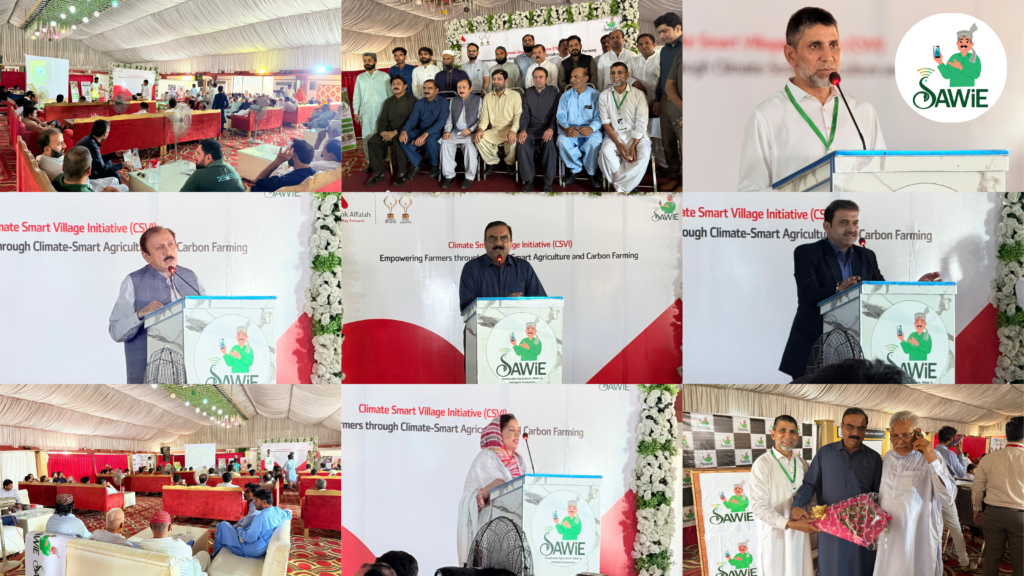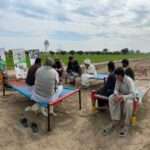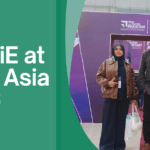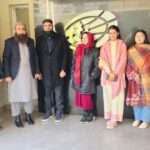News
SAWiE Launches Climate Smart Village Initiative in Layyah
The launch event for the Climate Smart Village Initiative (CSVI) was held on 4 August 2025 at Lok Virsa Hall in Karor, Layyah. Organized jointly by SAWiE Ecosystems Pvt. Ltd and Bank Alfalah, the event brought together stakeholders from government departments, academic institutions, financial organizations, development partners, technology providers, and rural farming communities. The CSVI is designed as a regenerative, climate-smart farming model that empowers smallholder farmers through digital advisory services, sustainable practices, and access to green finance.

Top News
Highlights:
(i) The Initiative introduces a scalable model for regenerative agriculture, integrating digital advisory tools, climate-resilient practices, and green finance mechanisms to support Pakistan’s smallholder farmers.
(ii) During the event, three Climate Smart Villages were officially announced in Punjab—Faisalabad, Vehari, and Layyah—each designed to reflect the distinct characteristics of their local cropping systems.
(iii) The event underscored the importance of inclusive partnerships, scientific validation, and enabling policy and finance ecosystems as critical foundations for agricultural transformation and climate adaptation.
(iv) Although there was no formal field visits, however, overview were provided by SAWiE representatives to illustrate the regenerative practices being implemented in the selected villages, including organic composting, improved irrigation techniques, and use of digital early warning systems.
Background
Pakistan is increasingly vulnerable to the impacts of climate change, with rising temperatures, erratic rainfall patterns, water stress, and extreme weather events disrupting agricultural productivity. These challenges threaten the livelihoods of more than 8 million smallholder farmers, who collectively contribute a significant share of the country’s gross domestic product and rural employment.
In response to this pressing crisis, the Climate Smart Village Initiative (CSVI) was launched by SAWiE Ecosystems Pvt. Ltd, in collaboration with Bank Alfalah. The CSVI aims to promote regenerative agriculture, improve resource efficiency, and enable smallholders to access emerging carbon markets by integrating data-driven farming, climate advisory services, and sustainable land management.
Key Activities
Setting the Vision for Climate Smart Villages
The event opened with remarks from Dr. Khalid Mahmood, Co-founder of SAWiE Ecosystems, who introduced the Climate Smart Village Initiative as a bold response to Pakistan’s climate-agriculture challenges. He described CSVI as a convergence model—where regenerative farming, digital technologies, and green finance come together to empower farmers with the tools, knowledge, and incentives to adopt sustainable practices.
Mahmood highlighted how the three pilot Climate Smart Villages in Faisalabad, Vehari, and Layyah represent diverse cropping systems and serve as real-world testbeds for scaling nature-based and data-enabled solutions. He emphasized that digital advisories, early warning systems, and localized training are central to the success of the initiative.
Strategic Partnerships and Government Support
Muhammad Yahya Wahla, Head of Agri Business at Bank Alfalah, outlined the bank’s commitment to facilitating the transition to sustainable agriculture. He highlighted the development of climate-aligned financial products, risk-sharing mechanisms, and customized credit lines that encourage smallholder investment in adaptive technologies.
Somia Atta Shahani, Member of the Punjab Assembly, commended the initiative’s inclusive approach, particularly its emphasis on youth and women. She emphasized the importance of replicating the CSVI model in underserved areas and integrating its principles into provincial development strategies.
Technical and Scientific Perspectives
Ishfaq Ahmad, Consultant to the Asian Development Bank (ADB), delivered a session on the role of agriculture in carbon markets. He provided an overview of carbon pricing mechanisms, including both compliance and voluntary market structures, and discussed agricultural practices with high additionality potential such as no-till farming, alternate wetting and drying, and biochar application. He also shared insights from currently registered carbon projects in Pakistan and offered key recommendations for future engagement. Dr. Ahmad emphasized the need to develop a national measurement, reporting, and verification (MRV) framework to enable Pakistan’s agriculture sector to access carbon finance opportunities under Article 6.4 of the Paris Agreement.
Dr. Ishfaq Ahmad Chattha (Ghazi University), Prof. Dr. Shafqat Saeed (Muhammad Nawaz Sharif University of Agriculture), and Prof. Dr. Abdul Wakeel (University of Agriculture Faisalabad) highlighted the importance of research-based protocols and university involvement in validating soil health improvement, integrated pest management, and regenerative land management. They advocated for increased investment in farmer training and evidence-based adoption pathways.
Innovation, and Community Voices
Dr. Muhammad Hanif from the Ghulam Ishaq Khan Institute (GIKI) and Dr. Samiullah Khan from Balochistan University of Information Technology, Engineering and Management Sciences (BUITEMS) emphasized the value of artificial intelligence, remote sensing, and predictive analytics in farm-level risk reduction. They presented applications of early warning systems, real-time weather alerts, and AI-powered crop diagnostics to increase decision-making efficiency.
Conclusion
The launch of the Climate Smart Village Initiative is a timely and much-needed step toward building climate-resilient and sustainable farming systems in Pakistan. It successfully brought together diverse stakeholders to discuss regenerative agriculture, digital innovation, and inclusive rural development. The initiative reflects strong potential for empowering smallholder farmers, especially women and youth, through localized solutions. While the event focused on knowledge-sharing and vision-setting, future engagements can further benefit from hands-on demonstrations to deepen community adoption. Overall, CSVI represents a promising model for transformative change in Pakistan’s agricultural sector.
Way Forward
The following next steps were agreed to guide the expansion and institutionalization of the Climate Smart Village Initiative:
(i) SAWiE and Bank Alfalah will scale CSVI to additional agroecological zones, with a focus on climate-vulnerable and underserved farming communities.
(ii) Farmer cooperatives will be digitally enabled to enhance access to advisory tools, regenerative inputs, and carbon finance opportunities
(iii) Partnerships with universities, fintech providers, insurers, and development agencies will be strengthened to scale innovation and de-risk adoption.
(iv) Dedicated training and leadership development programs will be initiated to engage rural youth and women in climate-smart and regenerative agriculture.



